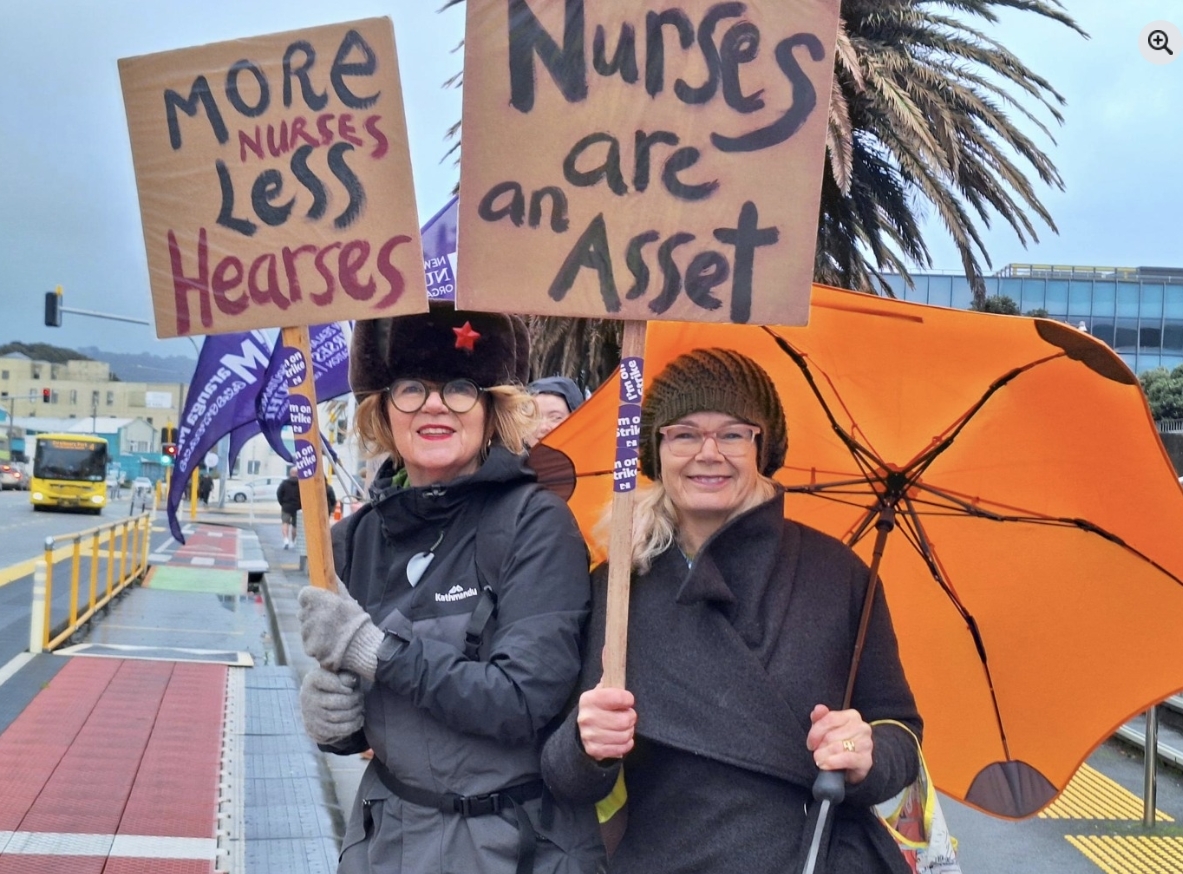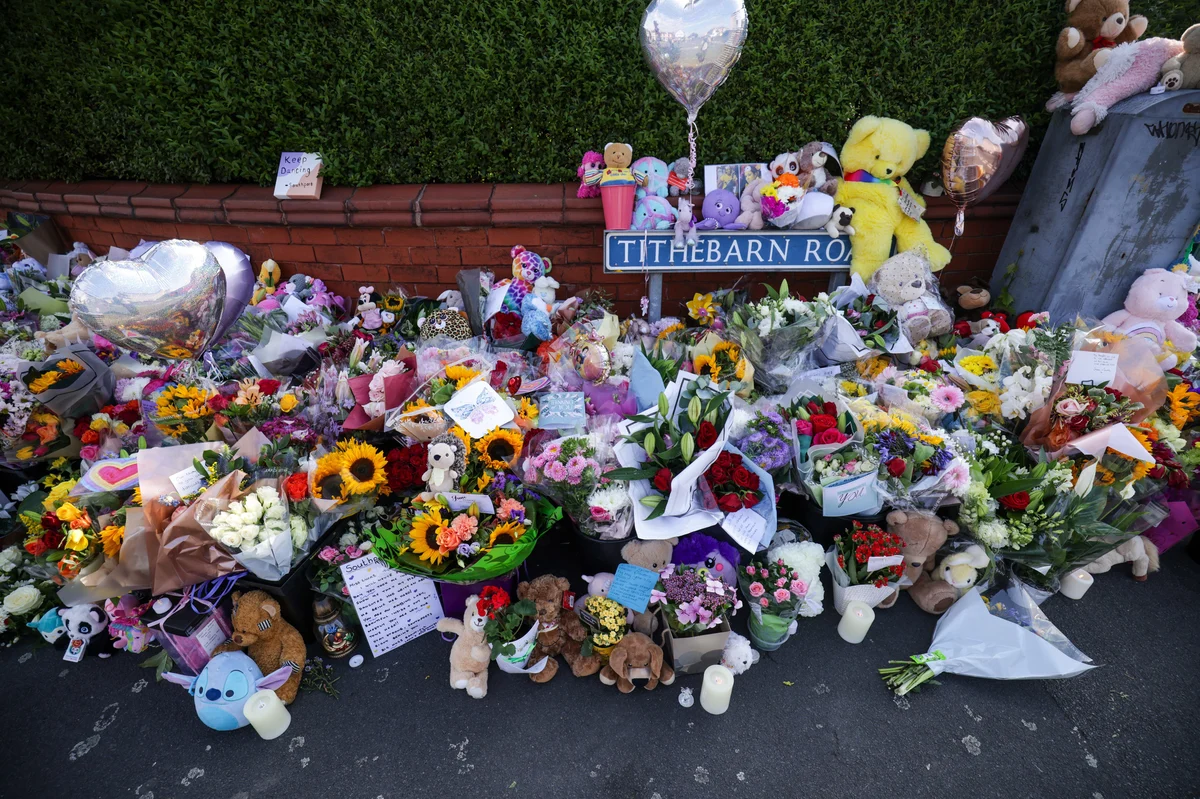Copyright times

Several Government Ministers are publicly slamming a decision that will see thousands of public sector workers across the country go on strike tomorrow, October 23. Public Service Minister Judith Collins says the proposed strike is unfair, unproductive and unnecessary and should be called off. “The strike will not help anyone. It is a stunt targeting the Government, but the people paying the price are the thousands of patients who have had appointments and surgeries cancelled, and the hundreds of thousands of kids who will miss another day at school. “For many students, the strike falls in the same week as a teacher-only day and ahead of Labour Weekend, and it comes just weeks out from crucial exams for NCEA-level students – many who have endured ongoing interruptions throughout their secondary education. “It is only by genuine negotiation that settlements are achieved. The Government is at the table with offers but the unions are out on the streets with megaphones.” Education Minister Erica Stanford says the Government is stretching its financial mandate to make an offer that means 66 per cent of trained primary teachers will be paid a base salary of at least $100,000 within 12 months of ratification – up from 40 per cent currently. “Under our latest offer to the PPTA, 76 per cent of all trained secondary teachers would be paid a base salary of at least $100,000 per annum from October 29 – up from 60 per cent currently. The PPTA has chosen to reject this offer. “Teachers and principals want to be at school, they can see the positive change in the classroom with our reforms. “Unions are letting them down by not bargaining in good faith and spreading misinformation about the process. Teachers, parents and students all deserve better. “The latest offers come on top of the $53 million the Government is spending to pay teachers’ registration and levies, our largest investment in a generation of $750 million into learning support, and huge investments into professional development and resources so teachers can focus on teaching the basics. “Yet neither the NZEI nor the PPTA have prioritised any of their claims to allow for any meaningful negotiation.” Health Minister Simeon Brown says the union representing senior doctors, who are among the most highly paid people in New Zealand, has walked away from an offer which would have improved their pay and conditions. “At Health New Zealand, average total remuneration for senior doctors, including overtime and allowances, is $343,500. “This does not include any work they do in the private sector. They also receive six weeks’ annual leave, paid leave for conferences and a fully paid three-month sabbatical every six years. “The latest offer would have provided a salary increase of at least five per cent over two years, with the ability to provide an additional increase for first-year specialists. “These increases are additional to the $5900 annual step increase senior doctors receive until they reach the top of the 15-step pay scale. “In addition, a $40 million fund is proposed for distribution to senior doctors to support the workforce with retention and address shortages in hard-to-staff hospitals.” The average salary for both Senior and Registered Nurses is $125,662, which includes overtime, a professional development allowance, and penal rates, Brown says. Under the latest offer, nurses on the top step would have had a two per cent increase in June, 2025, an extra $2135 per year, with another one per cent increase in June next year. “We have listened to the unions and made fair offers at the limits of the Government’s ability to make affordable settlements,” Collins says. “Dragging these negotiations out with industrial action is cruel to those people who were due to have surgery or vital consultations. It is disruptive for senior school students about to face exams. “It is irritating for families with younger school children and it is costing the unions’ own members, who not only lose a day’s pay but also delay settlements which will not be backdated. “Unions claim to represent the interests of their members. Those would be better served by constructive negotiation than by chanting slogans in the streets. “The unions have chosen disruption over dialogue. We’d encourage them to do the opposite.” However, the New Zealand Nurses Organisation says tomorrow more than 100,000 essential workers take part in strikes around the country to “call on the coalition Government to properly fund their vital public services”. “Essential public service workers including teachers, doctors, principals, nurses, allied health workers, home support workers, school support staff, policy, knowledge, advisory and specialist workers, Ministry of Education field staff and support workers will hold strikes on October 23 in the largest action in decades. “The strikes by each workforce follow recent breakdowns in bargaining over their respective collective agreements.” NZEI Te Riu Roa teacher and negotiation team leader Liam Rutherford says everyone wants an education system that works for all tamariki and for the people who teach and support them. “To have teachers, principals, support staff, as well as Ministry of Education support workers and field staff all striking, tells you how widespread the feeling is that change is needed in education,” he says. Association of Salaried Medical Specialists (ASMS) spokesperson and Starship Hospital respiratory paediatric physician Dr Julian Vyas says the Government needs to realise how strongly public sector workers, from healthcare and other sectors, feel about the “damage being done to services due to underfunding and lack of staffing”. “I think the New Zealand public will understand this strike action is about finding funding to provide the services that we all depend on and need to live healthy lives,” he says. NZNO enrolled nurse and bargaining team member Debbie Handisides says nurses, midwives and health care assistants are being asked to care for more and more patients who are increasingly unwell with fewer and fewer staff. “Staffing shortages put the safety of our patients at risk. When there aren’t enough nurses, care is delayed and lives are put in danger. This is not a standard of care we trained for or that New Zealanders deserve.” Public Service Assocation (PSA) president and digital service worker for Health NZ Virgil Iraia says he and his colleagues are striking for safe staffing and a fair pay offer which isn’t an effective pay cut. “Overworked and undervalued health workers cannot keep delivering the care patients need and deserve.” PPTA Te Wehengarua president and teacher Chris Abercrombie says when public education is properly valued and resourced, it can welcome all learners, and provide them with a responsive, safe school environment. “The Government must properly resource public education to ensure there are trained and qualified teachers in every classroom, and students have the support they need to thrive.” Firefighter and Tauranga Local Branch secretary for the New Zealand Professional Firefighters Union Mike Swanson says firefighters are striking for safe staffing levels so fire stations, trucks and call centres can remain fully staffed. “We also need the protection of safe systems of work to ensure that equipment, uniforms and vehicles are appropriate for the risks we face. “And when the worst happens, and our job gives us cancer, we want our management to support us in our push for ACC.”



